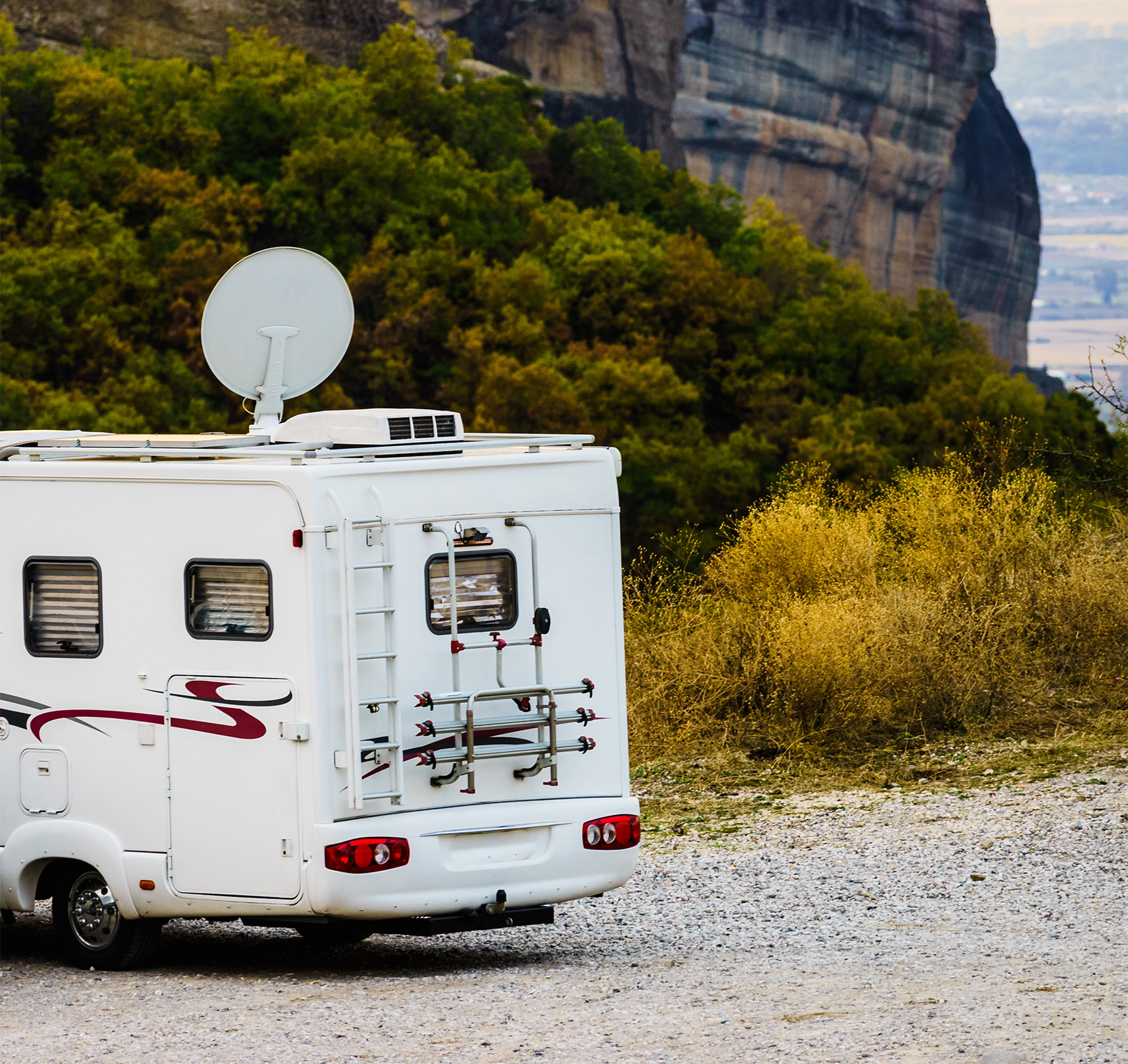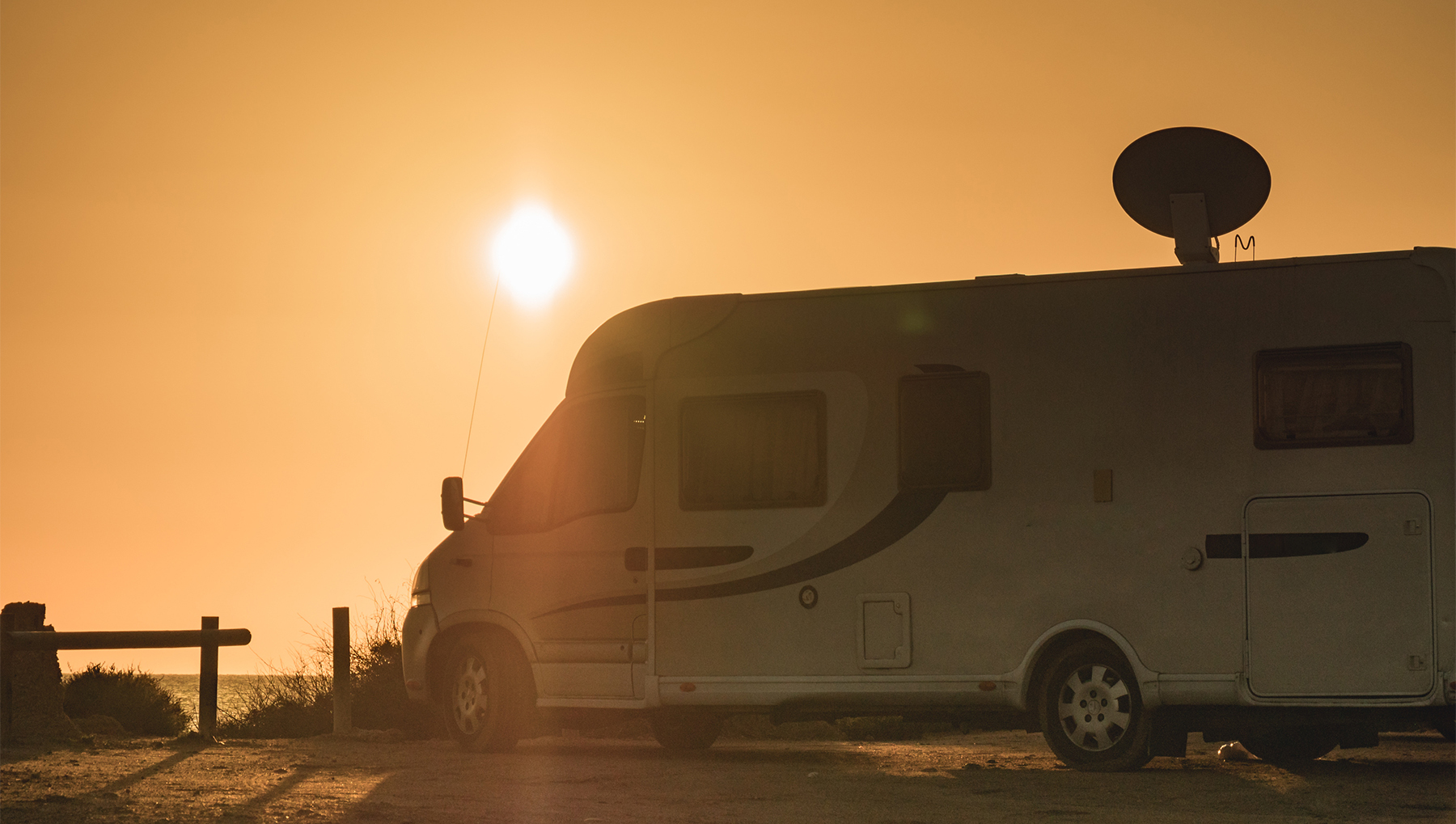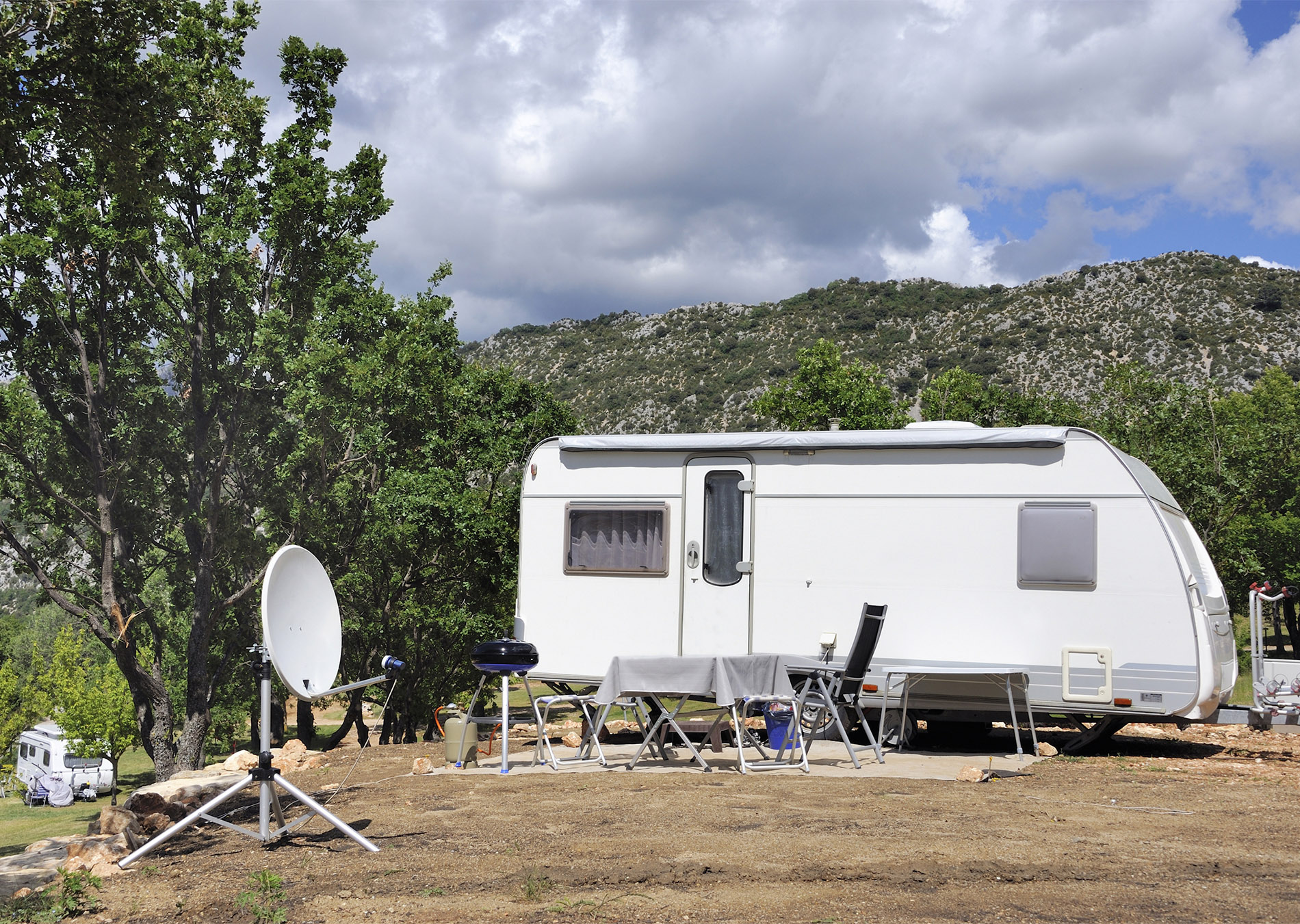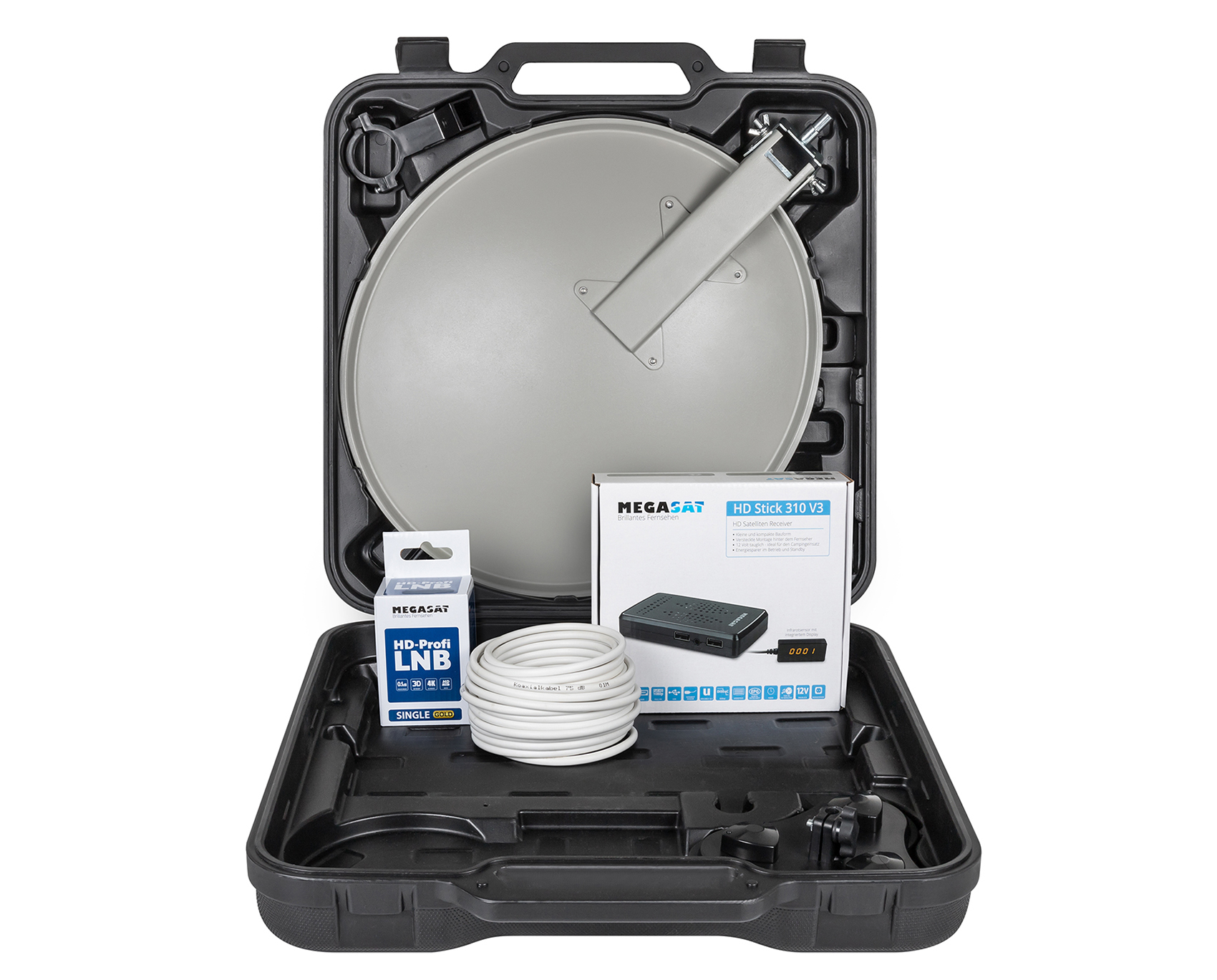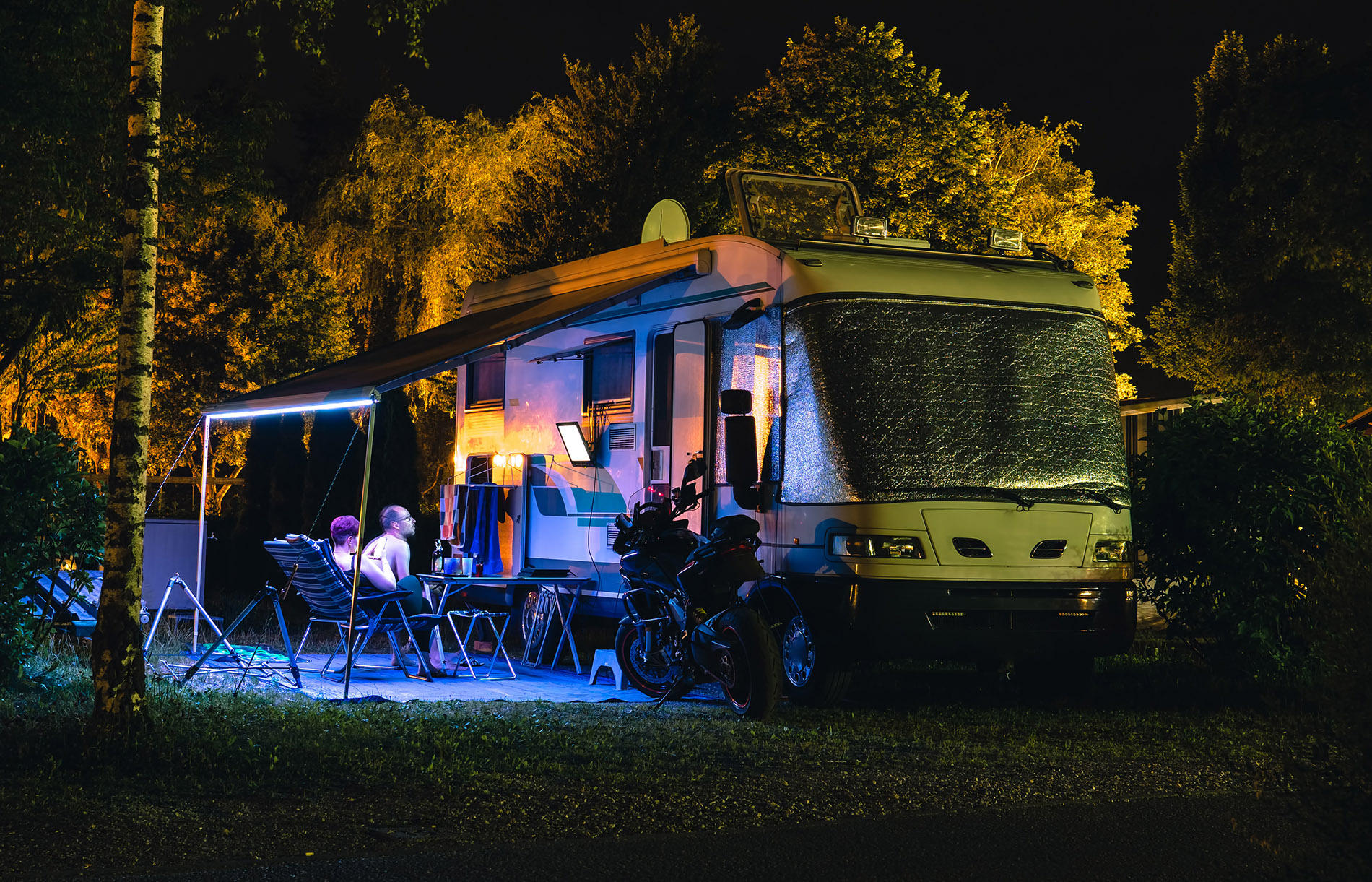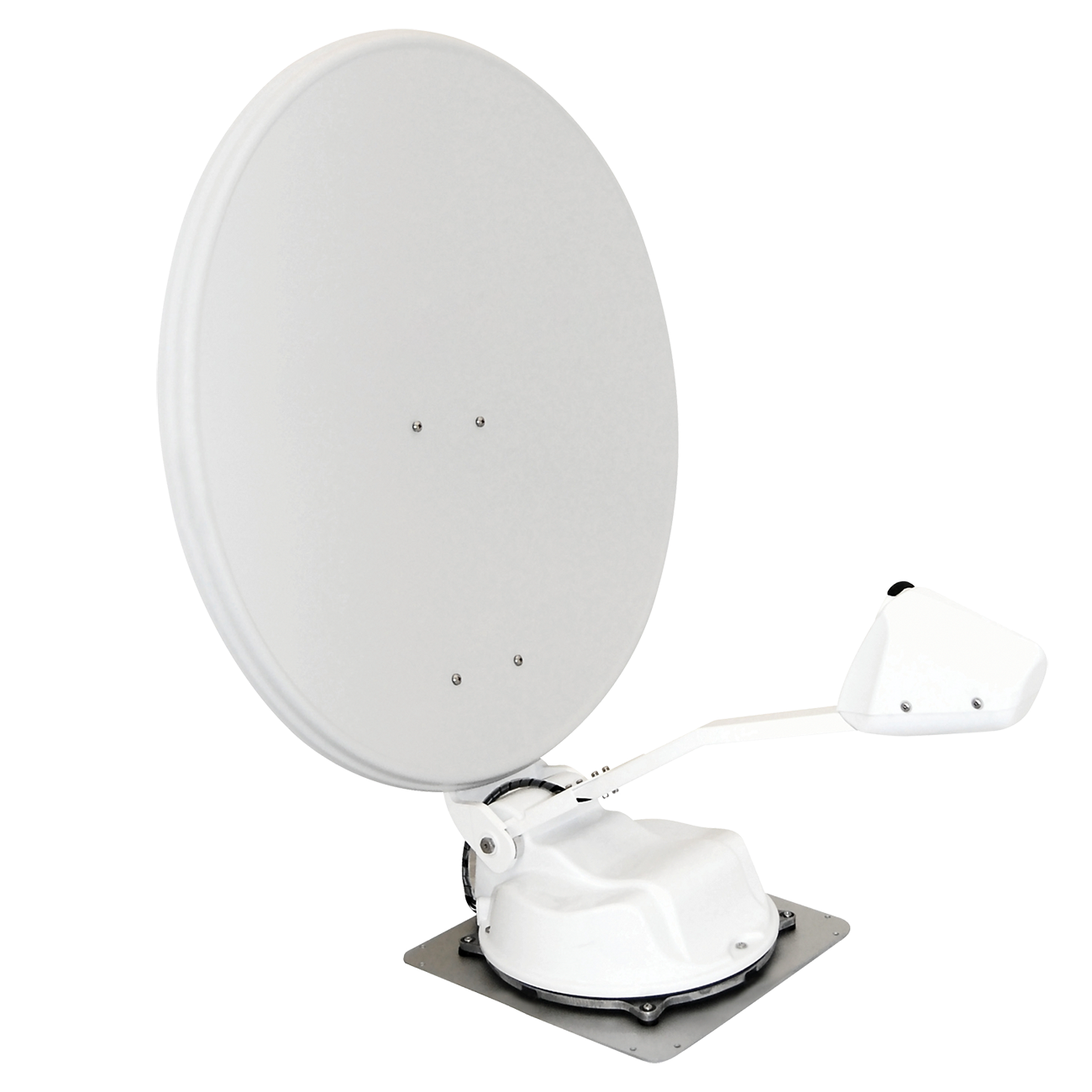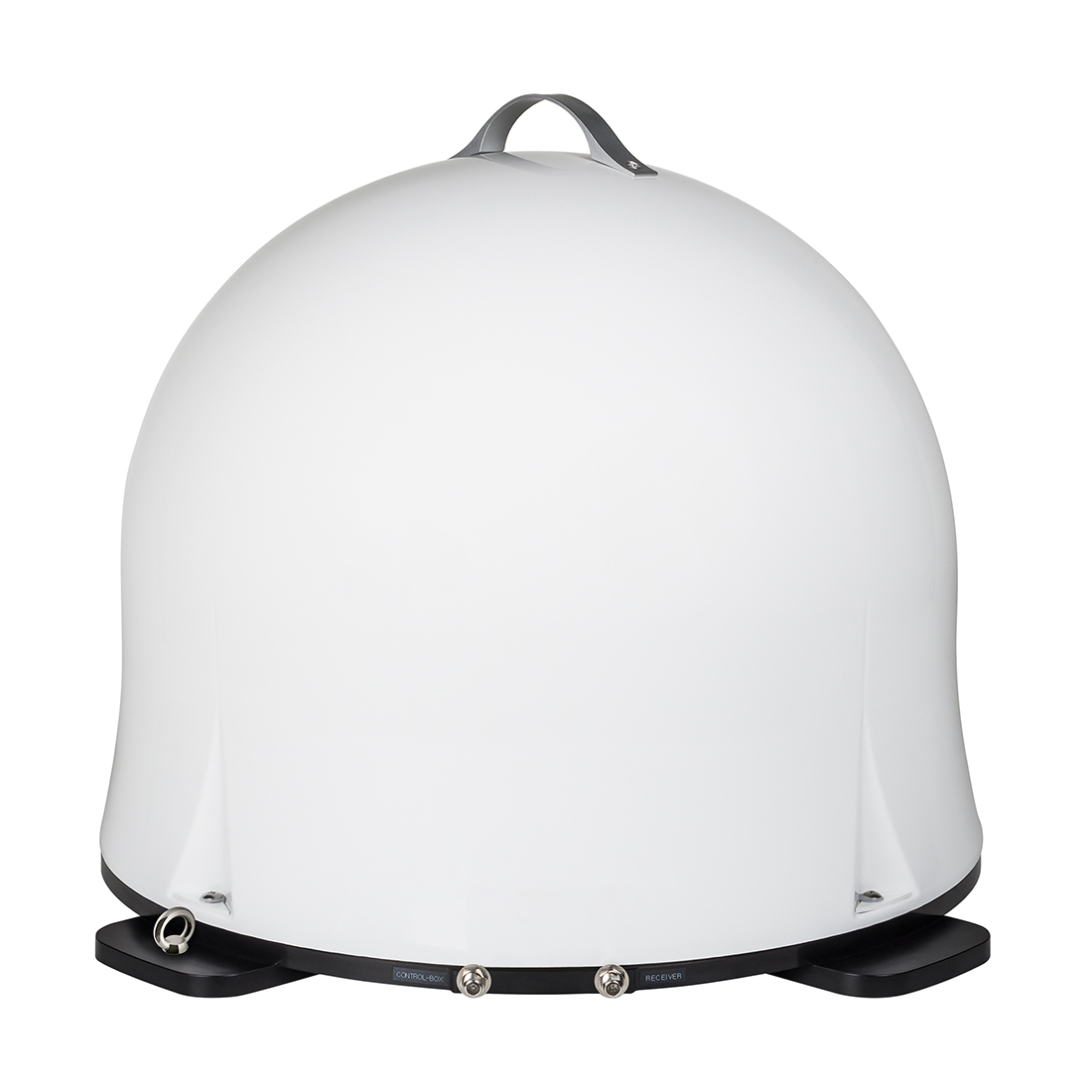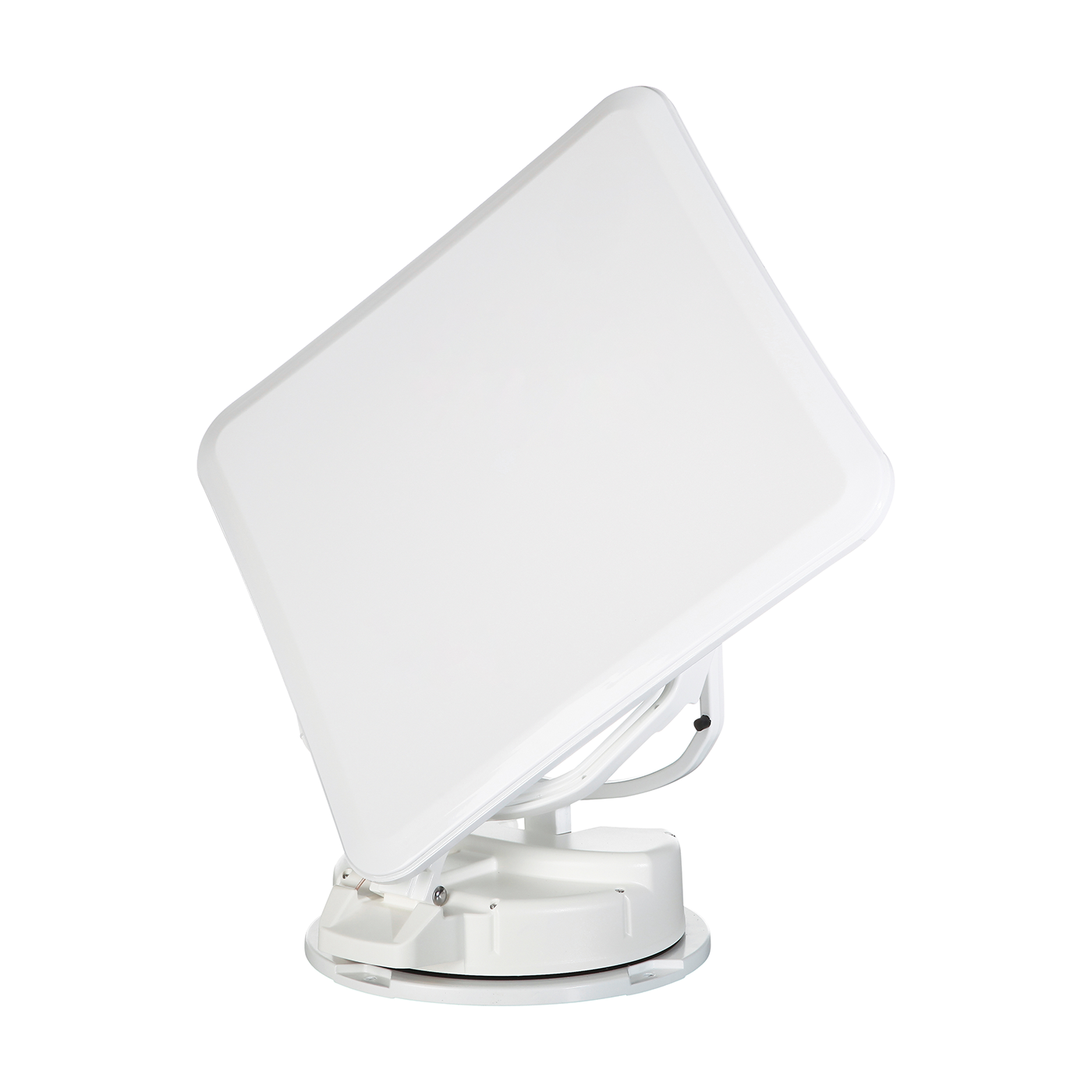Satellite Systems
Tune in to your favourite show – with a satellite system for caravans and motorhomes
Holidays are meant for relaxation. For you, a cosy evening in front of the TV is an absolute must for that? Wonderful!
With our modern satellite systems for motorhomes and caravans, you will be able to enjoy razor-sharp pictures.
You can easily find out which model is the right one for you by looking at your travel preferences:
Are you a camper who loves to change campsites often?
Then you should think about an automatic satellite system for motorhomes. For you, this means that you arrive at your destination, align your antenna to the strongest signal at the touch of a button and enjoy your favourite programme. Just like that. Permanently installed models are also an excellent choice for you. They don’t need to be dismantled and set up again every time you change locations. And the cables – once installed – can be hidden in your motorhome.
With fixed satellite systems, you can watch TV wherever you are
If you travel a lot, a permanently installed, fully automatic antenna is a great choice. With most models, you don’t need an external receiver and always have your own “tracking” with you. The automatic satellite alignment is very convenient, too. And your loved ones can even watch TV while you’re driving. But be careful! If you want to drive faster than 130 km/h, you need a dome system.
For those who always visit their favourite campsite and for permanent campers
Do you prefer to go to your favourite campsite and spend your whole holiday there? Then a cheaper, manually adjustable satellite system is ideal for you. You only have to adjust this antenna once at the beginning of your holiday. A mobile version also makes sense. Once set up or installed on the roof, the satellite antenna for motorhomes ensures that you have great reception every day. And if necessary, it can be readjusted in no time at all.
How do mobile camping satellite systems work?
They are almost as good as their big sisters on our roofs at home. They usually consist of
- a satellite antenna, for example a parabolic dish with a diameter of 50 - 85 cm
- a receiver
- a coaxial cable
The cable transmits the TV signal to your TV. If you want or have a second TV set for your mobile living room, you will need a twin system. We also have complete sets in our product range. They have the advantage that the components and cables supplied are definitely compatible. By the way, the size of a satellite dish for a caravan or motorhome only matters when it comes to better reception. It does not affect the number of channels available. And therefore, it’s very easy to equip a caravan or motorhome with a satellite system.
Installing & transporting a satellite system
There are different options for installing mobile satellite systems for caravans or motorhomes. Some can be permanently installed on the roof or mast, some are equipped with suction cups so that you can attach them where you want, and some come with an included foot – or tripod – so that you can place the antenna as high as possible. Small and compact, the satellite units can be transported and stored in a practical case.
Can you connect several devices to one system?
If you and your travel companion want to watch different programmes, we recommend a system with TWIN LNB. This allows you to operate two receivers and TV sets and enjoy your favourite programmes at the same time. Without having to argue about what to watch. It will be even more enjoyable if you use a pair of wireless headphones. Interested?
Tip
Think about buying a larger satellite dish right away – one with a diameter of 85 cm. Then you can also surf online like at home and watch TV at the same time.
Satellite systems with an integrated internet function – a dream come true!
Do you want to chat with friends, check your emails or listen to your online playlist while on holiday? You can easily do that with our combined satellite internet systems. They’re state-of-the-art and it can hardly get any better than that!
You’re probably familiar with this scenario. You arrive at a campsite and are excited when you find out that they have public WiFi. But when the signal strength leaves much to be desired, you always end up being disappointed. Public WiFi at campsites is usually inadequate. The signal is too weak, only partially covers the site and data security is not always guaranteed.
Internet via satellite
Especially for all those who do not want to do without a good internet connection on holiday, a web-enabled satellite system is the perfect solution. Systems like that provide a stable internet connection and tariffs that are also valid across national borders. A sufficiently large parabolic reflector with a diameter of 85 cm will ensure good reception. Flat antennas cannot be used.
Cheaper alternatives
A good alternative is your own private WiFi hotspot. In combination with a WiFi/LTE unit with strong transmission and reception, you will have an internet connection just like at home. Since many mobile devices without a SIM card slot cannot connect to the mobile internet, you should get a WiFi/LTE antenna. With one of those, you can surf flexibly and without having to worry about the security of your data. You’ll create your own hotspot – and be able to enjoy a stable internet connection at a campsite with poor reception. Your end devices connect to the WiFi via the router and use the data package of the hotspot. Alternatively, you can also use the campsite’s WiFi.
Products that provide an internet connection
- LTE/WiFi Antenna Oyster Connect Vision
- LTE/WiFi Antenna Maxview Roam
- LTE/WiFI Antenna alphatronics Mobile Connection
- LTE/ WiFi Antenna Caratec Electronics CET300R
Should you get a mobile satellite system with a parabolic dish, a dome antenna or a flat antenna?
Mobile satellite systems can be installed in parabolic dishes, dome antennas or flat antennas. In terms of performance, dome antennas are in no way inferior to parabolic dishes. What’s more, they are hardly susceptible to wind and weather – and streamlined to boot.
Tip
For a three-week camping holiday on the same campsite, a mobile set with a small parabolic dish is more than sufficient. Just set it up on the site or clamp it to your mast – and that’s it.
If you love to travel to different campsites during your holiday, you should take a closer look at our state-of-the-art automatic satellite systems. That way, you can tune in to your favourite show – even in your motorhome!
Technical terms simply explained
- What is a dome system?
The technical components of the satellite system are hidden under a plastic dome. The compact antenna is usually permanently installed on the roof of the caravan or motorhome and protrudes slightly above the normal installation height. For a detailed description, see dome or flat antenna. - What is a coaxial cable?
Coaxial cables are two-core cables. Since coaxial cables are particularly suitable for transmitting high-frequency broadband signals, they are often used for the transmission of broadcast signals. - Internet via satellite
A satellite dish receives the data and transmits it to a modem. All web-enabled devices can log into the network and go online. Internet via satellite does not require any cables and is available everywhere. Depending on your provider and contract, special VoIP services can also be booked. - What is a parabolic dish? (colloquial)
A parabolic dish is basically an antenna. The curved shape of the parabolic antenna is reminiscent of a dish – hence the name. The task of the antenna/dish is to receive signals from distant television satellites. These signals travel about 36,000 km before reaching their destination. Because of that, they are very weak and have to be received in the parabolic dish. There, they are bundled in the focal point so that they can be used. It is important that you align the satellite dish with the satellite as precisely as possible. The signal is particularly strong at the so-called focal point of the satellite dish and is received and processed from there via an LNB. Via a coaxial cable, it is then forwarded to a receiver or a distributor such as a satellite system. - What does TWIN LNB mean?
LNB stands for low-noise block downconverter, meaning it’s a low-noise signal converter or signal amplifier. The LNB is a component of a microwave receiver and is located at the focal point of the parabolic dish. There, the LNB amplifies the weak signals/microwaves received from satellites in space and translates them into a low-noise and low-loss intermediate frequency. This translation is necessary so that the data can be transported to a satellite receiver via a coaxial cable.
TWIN LNB means that up to two receivers can access the satellite signal independently of each other. In short, that means that with the right equipment, you no longer have to argue about what to watch on holiday.
- What is a receiver?
A receiver is responsible for receiving and decoding or processing signals. Generally, this includes audio, video and text data that the receiver can process for various output devices. That means that without a receiver, there is no picture, sound or text on the screen or on the radio. - What are dome or flat antennas?
These antennas have a few things in common. Both have a very compact design, no protruding arm and a fully integrated LNB. With both antennas, the name says it all: dome antennas and flat antennas hide their technical components behind a dome or a square flat housing, respectively. That way, the components are shielded from the outside, which ultimately makes cleaning and maintenance easier. In addition, both antenna types can be permanently installed on a recreational vehicle. However, flat antennas were specially developed for installation on motorhomes. Both antenna shapes are aerodynamic. If you have a dome antenna, always keep in mind that it makes your vehicle higher before driving under low bridges, for example. But despite all the advantages this type of antenna offers, the reception performance of a parabolic antenna is still significantly better. If you want to camp in very remote areas, go for the parabolic dish.
























